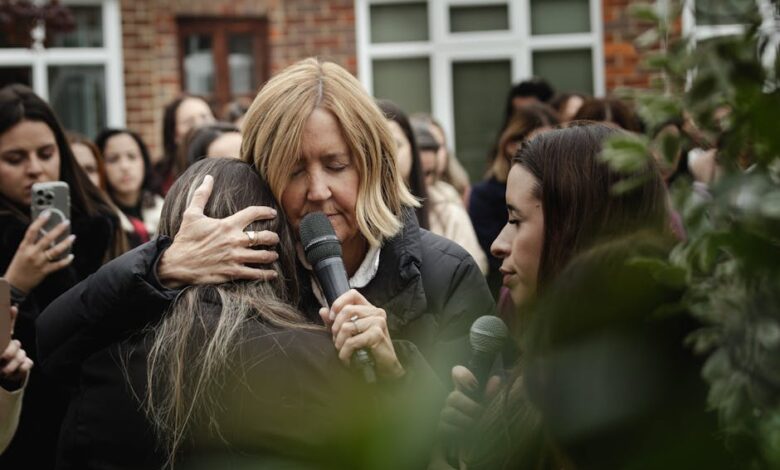The Echo Chamber of “Support”: More Than Just Words?

In the whirlwind world of elite football, where narratives shift faster than a winger down the touchline, a manager’s tenure is often as stable as a house of cards in a hurricane. Promises, declarations of unwavering belief, and long-term visions can evaporate in a single poor run of results. So, when a figure like Ruben Amorim, reportedly linked with one of football’s biggest institutions, Man Utd, suggests he ‘feels support every day,’ it immediately piques interest. It’s a statement that sounds reassuring, almost idyllic, but in the cut-throat realm of top-tier management, it also begs a more fundamental, almost existential question: what does ‘support’ truly mean, and can it truly guarantee the longevity of a manager, especially one reportedly signing a high-profile three-year deal?
The very concept of a three-year managerial contract, particularly at a club with the intense scrutiny and lofty expectations of Manchester United, is a fascinating paradox. On one hand, it implies a commitment, a belief in a long-term project. On the other, history is littered with managers who signed similar deals, only to find themselves clearing their desks far sooner than anticipated. It’s a stark reminder that in modern football, time is a luxury rarely afforded, and patience is a virtue often preached but seldom practiced.
The Echo Chamber of “Support”: More Than Just Words?
When a manager states they ‘feel support,’ it’s rarely just about a pat on the back or a kind word from the hierarchy. True support, in the relentless environment of professional football, is a multi-faceted beast. It manifests in various forms, some tangible, some much less so, but all crucial to a manager’s ability to implement their vision and, ultimately, succeed.
Financial Backing and Transfer Policy Alignment
Perhaps the most obvious indicator of support comes in the transfer market. Does the board back the manager’s targets? Are funds made available for key acquisitions that fit the manager’s tactical philosophy? A manager might have a brilliant strategic mind, but without the tools to execute that strategy – the right players – their vision remains just that: a vision. Disagreements over transfer targets or a lack of investment often signal the first cracks in the façade of support, even if public statements remain outwardly positive. At a club like Man Utd, with its vast resources, the expectation of substantial backing is practically etched into the club’s DNA.
Strategic Alignment and Club Vision
Beyond finances, there’s the crucial element of strategic alignment. Does the manager’s footballing philosophy align with the club’s overarching vision? Is there a clear, shared understanding of how the team should play, develop, and what its identity should be? A manager can feel supported in terms of resources, but if their playing style clashes with the club’s history or the fanbase’s expectations, that ‘support’ can quickly erode. For a club like Manchester United, with its rich heritage of attacking football, a manager’s stylistic approach is always under intense scrutiny. It’s not just about winning; it’s often about *how* you win.
The Three-Year Deal: A Modern Football’s Tightrope Walk
The three-year deal, once a common benchmark for a stable managerial appointment, now feels almost aspirational. In an era of instant gratification and short-term thinking, completing such a term at a top club is a significant achievement. This contract length is supposed to provide a window for building, for embedding a philosophy, for weathering initial storms, and for delivering results. Yet, the statistics tell a different story, with the average tenure at many top clubs shrinking considerably.
Performance: The Ultimate Arbiter
No amount of verbal support or strategic alignment can long withstand a sustained period of poor results. Ultimately, football is a results business. Three years might be the contractual term, but performance dictates the real-world timeline. Falling short of immediate objectives – European qualification, trophy contention, or even just consistent progression – will inevitably put pressure on the ‘support’ a manager feels. The modern fan, fueled by social media and an insatiable desire for success, has little patience for rebuilding phases that don’t show tangible signs of improvement. At a club like Man Utd, the pressure to deliver is constant and intense, far outweighing the paper commitment of any contract.
Fan Sentiment and Media Scrutiny
The court of public opinion, amplified by an ever-present media landscape, plays an enormous role. Even with boardroom backing, if the fans turn, or if the media relentlessly questions a manager’s methods, the pressure can become unbearable. This external scrutiny can seep into the dressing room, affect player morale, and ultimately undermine the internal support structure. A manager needs to be able to navigate this storm, not just perform on the pitch. For a potential manager at Old Trafford, the media spotlight is a perpetual beam, magnifying every decision, every result, and every public statement.
Beyond the Honeymoon: Sustaining Momentum and Trust
The initial period of any managerial reign often benefits from a ‘honeymoon phase,’ where new ideas are exciting, and promises of a brighter future hold sway. But sustaining that momentum, and more importantly, maintaining trust – from the players, the board, and the fans – is the true challenge. Amorim’s hypothetical three-year tenure would certainly test his ability to keep all these plates spinning.
It’s about showing adaptability, both tactically and in managing human dynamics. It’s about cultivating a strong dressing room culture where players buy into the project, not just for a season, but for the long haul. It’s about demonstrating resilience when results dip, and showing growth even in challenging periods. This isn’t just about tactical prowess; it’s about leadership, communication, and an unwavering belief in one’s own methods, even when the external noise reaches its peak.
Conclusion: The Perilous Path of Promise and Performance
Ruben Amorim stating he ‘feels support every day’ is a positive sentiment, but in the high-stakes game of Premier League football, particularly at a behemoth like Manchester United, ‘support’ is less a static state and more a dynamic, ever-negotiated entity. It’s built on initial trust, maintained by consistent performance, and tested by every challenge that comes its way. A three-year deal isn’t a guarantee; it’s an opportunity, a canvas upon which a manager must paint a compelling picture of success, progress, and a clear footballing identity.
Whether any manager, including Amorim, can truly see out such a contract at a club demanding instant glory will always depend on a delicate balance: the tangible backing from the hierarchy, the alignment of vision, the unwavering belief of the players, and crucially, the sustained delivery of results that keep the formidable Manchester United fanbase dreaming of future glories. It’s a tightrope walk, and the wind always seems to blow a little stronger at Old Trafford.





